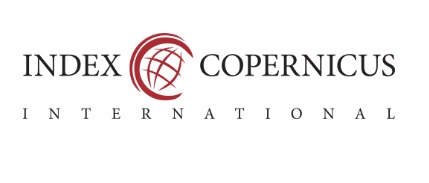Think globally, act locally: Case study BSU summer school in Shanghai, China 2018
Abstract
Aim: This article examines the perspectives of Chinese students and faculty regarding their learning and teaching styles, intercultural understanding, and pedagogical skills. With the backdrop of declining state and federal funding for public education in the United States, competition for students, and a strong academic desire for the internationalization of higher education, universities have begun to focus on global issues to promote global citizenship among their student bodies. Bridgewater State University (BSU), a public institution of medium size, was an early adopter of signing a partnership agreement and collaborating with a third-party organization in China to recruit students.
Method: Quantitative and qualitative methods were used to compile the analytical discussion analysis. This article focuses on the international educational model KAP: Knowledge, Attitudes, and Practice and how it applies to theories of interpersonal communication and the growth of communication and management.
Findings: The results indicate that students across China are drawn to BSU’s summer program in Shanghai. Colleges and universities in the United States and Canada have no problem recognizing, accepting, and transferring credits earned at American institutions like Bridgewater State University and Canadian university summer programs.
Implications/Novel Contribution: The significance of this case is
1) To showcase the innovative approach of BSU to provide academic opportunities for international students to complete a portion of required
and elected courses taught by BSU faculty and
2) To avoid the cost of building and maintaining international campuses or branches abroad.
References
Ambrose, S. A., Bridges, M. W., DiPietro, M., Lovett, M. C., & Norman, M. K. (2010). How learning works: Seven research-based principles for smart teaching. New York, NY: John Wiley & Sons.
American Council on Education. (n.d.). Programs and services. Retrieved from https://bit.ly/2Xy38YA
Bai, X. (2018). Group leader of operation and management. London, UK: Sage Publications.
Barr, R. B., & Tagg, J. (1995). From teaching to learninga new paradigm for undergraduate education. Change: The Magazine of Higher Learning, 27(6), 12-26. doi:https://doi.org/10.1080/00091383.1995.10544672
Bodycott, P., & Walker, A. (2000). Teaching abroad: Lessons learned about inter-cultural understanding for teachers in higher education. Teaching in Higher Education, 5(1), 79-94. doi:https://doi.org/10.1080/135625100114975
Cbert. (2011). Branch campus listing. Retrieved from https://bit.ly/2XtHsgk
Dickler, J. (2020). Stemming the flow of international students could cost "US colleges $41 billion. Retrieved from https://cnb.cx/2EMfrtE
Fendler, J., & Gläser-Zikuda, M. (2013). Teaching experience and the shift from teaching to learning . Journal for University Development, 8(3), 45-60. doi:https://doi.org/10.3217/zfhe-8-03/03
Fischer, K. (2019). How international educations golden age lost its sheen. The Chronicle of Higher Education, 5(7), 56-70.
Friedman, T. L. (2005). The world is at: A brief history of the twenty-rst century. New York, NY: Farrar, Straus, and Giroux.
Global Perspectives. (2019). KEAN University. Retrieved from https://bit.ly/31snG5O
Groccia, J. E., Alsudairi, M. A., & Buskist, W. (2012). Handbook of college and university teaching: A global perspective. London, UK: Sage Publications.
Hagedorn, L. S., & Hu, J. (2014). Eastern dreams: Alternative pathways for chinese students pursuing baccalaureate degrees in the united states. College and University Journal, 89(4), 75-80.
Harvard Extension School. (2019). Graduate degreess and certificates. Retrieved from https://bit.ly/30y5QyY
Harvey, L. (1997). Transforming higher education: Students as key stakeholders. Quality Assurance as Support for Processes of Innovation, 5(6), 59-79.
Knight, P., & Routti, J. (2011). E-development and consensus formation in Finland. Journal of the Knowledge Economy, 2(1), 117144. doi:https://doi.org/10.1007/s13132-010-0023-6
Lane, J., & Kinser, K. (2008). The private nature of cross-border higher education. International Higher Education, 5(53), 56-70. doi:https://doi.org/10.6017/ihe.2008.53.8051
Leiber, T. (2019). A general theory of learning and teaching and a related comprehensive set of performance indicators for higher education institutions. Quality in Higher Education, 25(1), 76-97. doi:https://doi.org/10.1080/13538322.2019.1594030
Minnock Institute for Global Engagement. (2018). Strategic plan. Retrieved from https://bit.ly/3icCexq
Mueller, J. R. (2017). Capturing student learning with thematic analysis. Journal of Advanced Research in Social Sciences and Humanities, 2(6), 342-347. doi:https://doi.org/10.26500/jarssh-02-2017-0601
New York University. (2020). stduy abroad. Retrieved from https://bit.ly/2XyN88H
Ramsden, P. (1991). A performance indicator of teaching quality in higher education: The course experience questionnaire. Studies in Higher Education, 16(2), 129 150. doi:https://doi.org/10.1080/03075079112331382944
Rostron, M. (2009). Liberal arts education in Qatar: Intercultural perspectives. Intercultural Education, 20(3), 219-229. doi:https://doi.org/10.1080/14675980903138517
Schneider, R., Szczyrba, B., Welbers, U., & Wildt, J. (2009). Change of teaching and learning cultures. Berlin, Germany: Bertelsmann Verlag.
Skoric, J., & Kupresanin, J. (2018). Social work in educational system of the balkans is social worker needeed in schools? International Journal of Humanities, Arts and Social Sciences, 4(6), 245-252. doi:https://dx.doi.org/10.20469/ijhss.4.10003-6
Thiangthung, Y. (2016). Applying Polya’s four-steps and schoenfeld’s behavior categories to enhance students mathematical problem solving. Journal of Advances in Humanities and Social Sciences, 2(5), 261-268. doi:https://doi.org/10.20474/jahss-2.5.2
University of Toronto. (2019). Summer school. Retrieved from https://bit.ly/31sHgPk
Ware, P. (2013). Teaching comments: Intercultural communication skills in the digital age. Intercultural Education, 24(4), 315-326. doi:https://doi.org/10.1080/1467986.2013.809249
Wildt, J. (2003). The shift from teaching to learning. Thesen zum Wandel der Lernkultur in modularisierten Studienstrukturen, 90(7), 14-18.
Yu, C. W. (2019). Workshop: Innovation and entrepreneurship model of international summer schools in china (Unpublished master’s thesis). School of Foreign Languages and Mass Communication, Beijing Jiaotong University, Beijing, China.
Zhaoxia, B., Shunsui, Y., Ying, L., & Fengyu, W. (2016). Internationalization of top institutes and departments of East Asian studies in North American universities. Journal of Beijing University of Aeronautics and Astronautics Social Sciences Edition, 29(5), 110-120.

This work is licensed under a Creative Commons Attribution-NonCommercial 4.0 International License.












.png)










